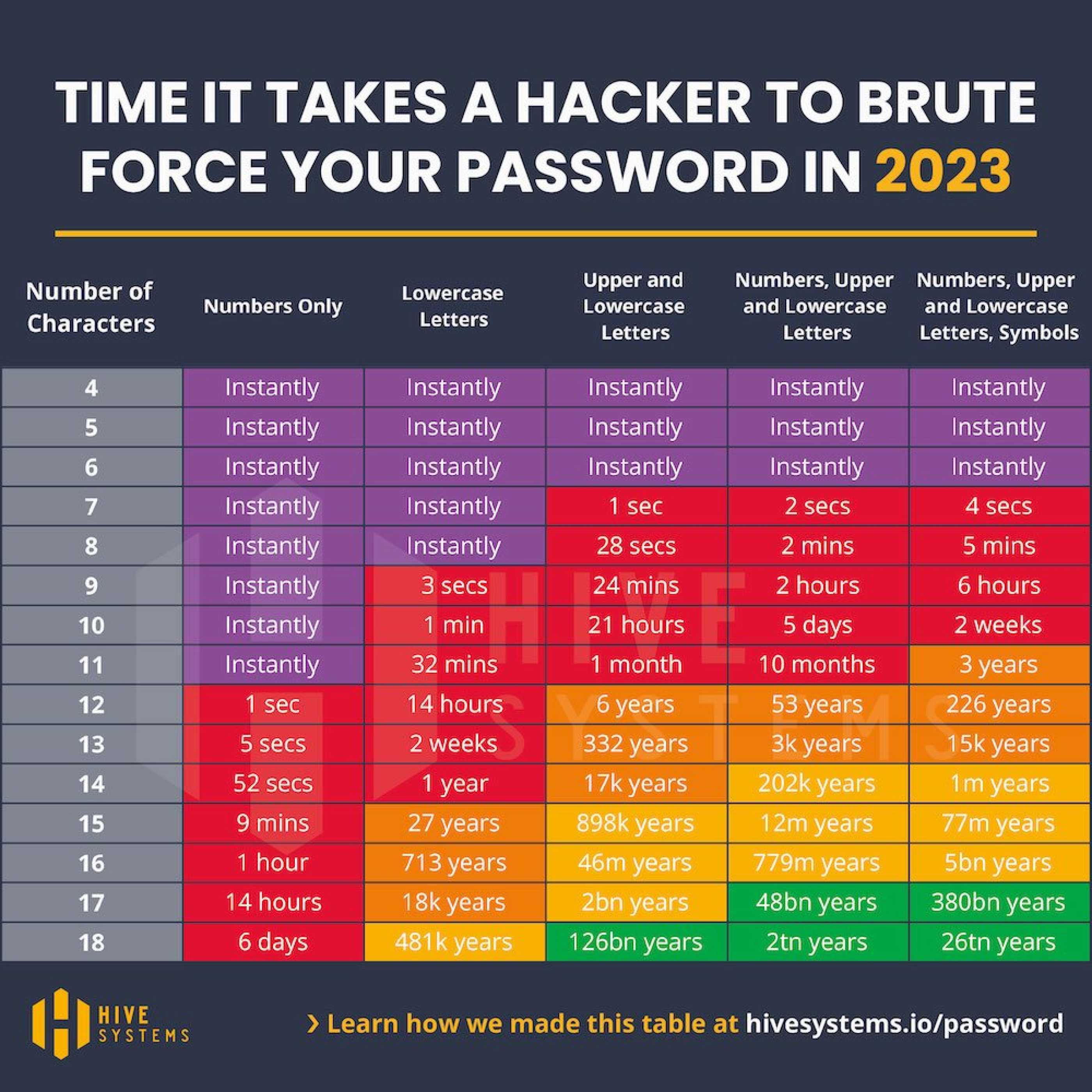Protect Yourself!
15th February 2024
Users can play a significant role in preventing cyber hacking incidents by adopting good cybersecurity practices. While it is impossible to eliminate all cyber threats entirely, users who follow best practices can greatly reduce their risk of being targeted and compromised. Here are some ways in which users can contribute to preventing cyber hacking:
Strong and unique passwords: Most people are still really bad at this! Creating strong passwords that are difficult for hackers to guess is crucial. Users should avoid using common passwords and use a combination of uppercase and lowercase letters, numbers, and special characters. It's also important to use a unique password for each online account to minimize the impact of a potential breach.
Multi-factor authentication (MFA): Enabling MFA adds an extra layer of security by requiring users to provide additional verification, such as a temporary code sent to their mobile device, in addition to a password. This makes it significantly harder for hackers to gain unauthorized access to accounts.
Regular software updates: Keeping software, operating systems, and applications up to date is crucial. Developers frequently release patches and updates to address security vulnerabilities, and by staying current with these updates, users can protect themselves against known exploits.
Phishing awareness: Users should be cautious of suspicious emails, messages, or links that could lead to phishing attacks. Phishing attempts often involve tricking users into providing sensitive information or downloading malicious software. Being vigilant and verifying the authenticity of requests before sharing personal or sensitive data is crucial.
Secure browsing habits: Users should be cautious when visiting websites, especially those that are not familiar or do not have a secure connection (HTTPS). Avoid clicking on suspicious links and downloading files from untrusted sources. Utilizing browser security features and ad-blockers can also provide an additional layer of protection.
Regular data backups: Regularly backing up important files and data can help mitigate the impact of ransomware attacks or data breaches. Users should use offline or cloud-based backup solutions to ensure their data is protected.
Education and awareness: Staying informed about the latest cybersecurity threats and techniques is essential. Users should educate themselves about common attack methods, such as social engineering, and learn how to recognize and respond to potential risks.
While users can significantly reduce their risk of cyber hacking by following these practices, it's important to note that cybersecurity is a collective responsibility. Organizations and service providers also play a crucial role in implementing robust security measures and educating users about potential threats.
Find out more about our services.
